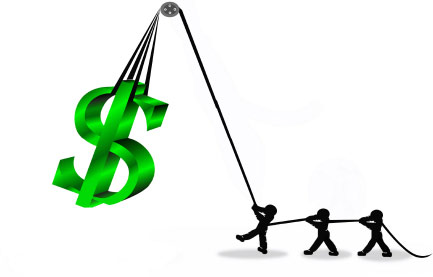New Orleans The Tides Momentum conference is designed to move and educate the Tides donor community by integrating them with organizations, activists, and thinkers. Ironically, the lessons that I kept taking from the event and the speakers was the urgency we must bring to our work to find more effective ways and means to link the work directly to people and by doing so to the generosity of their support.
Thinking increasingly of what it takes to raise support for ACORN International and its unique, but aggressive organizing around the globe, it is hard to resist searching for newer and more sustainable financial models. In building ACORN a million years ago membership dues was the key to unlock the doors. Internationally, dues are important, but not enough to sustain the work.
In the US there sometimes were other ways across the bridge between what was available and what was needed from outside sources, which are not available in many of the countries where we work. Honestly, the resources were always uneven in the US as well, and without a structured and disciplined internal program the organization never would have grown past those cities that could balance the resources. The is a world of difference between a New York, a San Francisco, a Minneapolis, a Boston, a Philly, or a Chicago compared to Des Moines, New Orleans, El Paso, Miami, Salt Lake City, and Fresno. Without care one could wake up and find the international organizing model works in the major industrialized cities in the world and fails in the mega-slums where our mission meets the most traction around the world.
A couple of points made during the week keep resonating, not because they provide the answer so much as the direction:
* Peter Leyden of Next Agenda underlined from the first day that the Obama internet fundraising model has now tilted the nature of public candidacies away from the rich and corporations to individuals. I’m not sure this is 100% true, but it certainly is true enough to spend a lot of time thinking about how to duplicate.
* In a casual conversation with Bob Edgar, now the head of Common Cause, I shared a story of walking through their offices in the 70’s and looking at their direct mail operation. He then told me how much they still produce that way answering any questions about long term sustainability for them using that tool.
* A point made by one of my fellow Tides Board members, as we evaluated the conference (I think props here are to john powell), noted that there were two elements every speaker needed to remember, but only some of them understood: one was the importance of content, and the other was the important of presentation. In organizing we have often forgotten the second element, believing somehow the first would trump everything. The best example was cited by another esteemed board member (Joel Solomon if memory serves) who mentioned complaining as Lawrence Lessig, the internet legal czar and Stanford prof, “…oh, god, another powerpoint,” and then finding that he was mesmerized by the way Lessig integrated everything he said into the slides so that the presentation was seamless.
* It also has become increasingly clear that any model based on the wishes and whims of donors is by definition unsustainable. You can’t build for the future on such shifting sands subject to every roll of the surf.
At the end of the day in the same way we learned in Little Rock neighborhoods with dues, you first have to ask. On the international side we are going to begin doing the same thing, asking first one, and then another, to step forward and pledge to support the work directly, people to people. If it works, then there is real worth. If it doesn’t, then the judgment is equally clear.
But, first we have to ask, and asking is what we are about to do.
